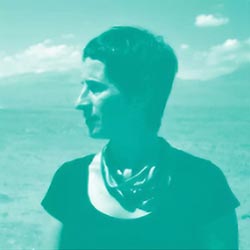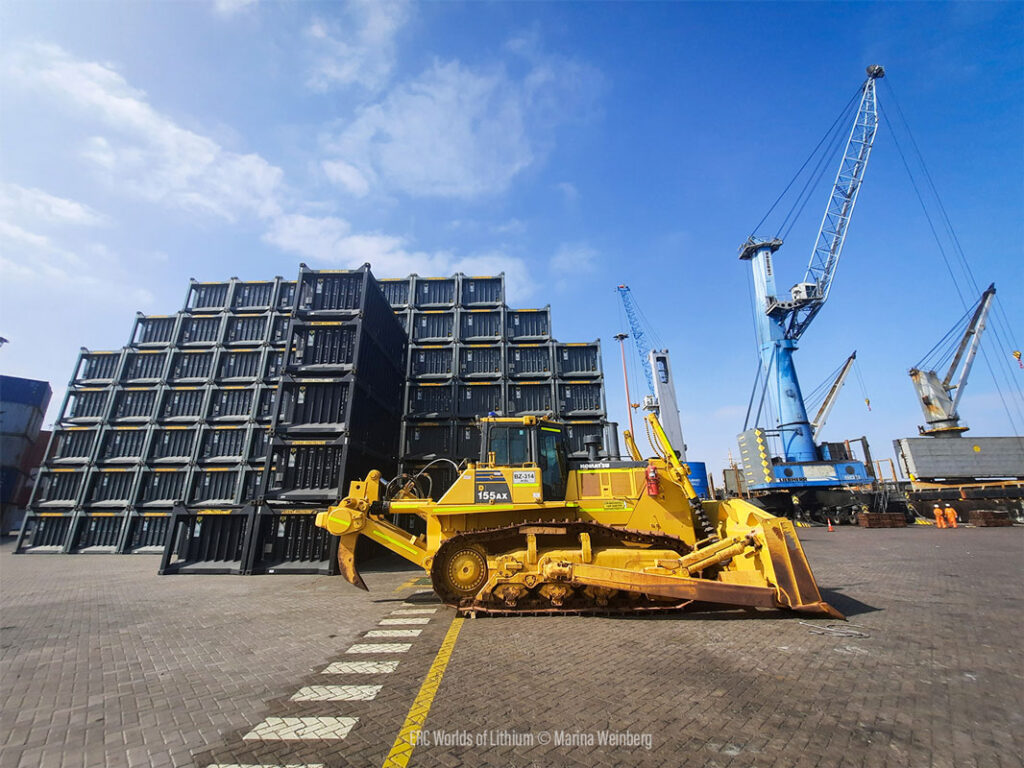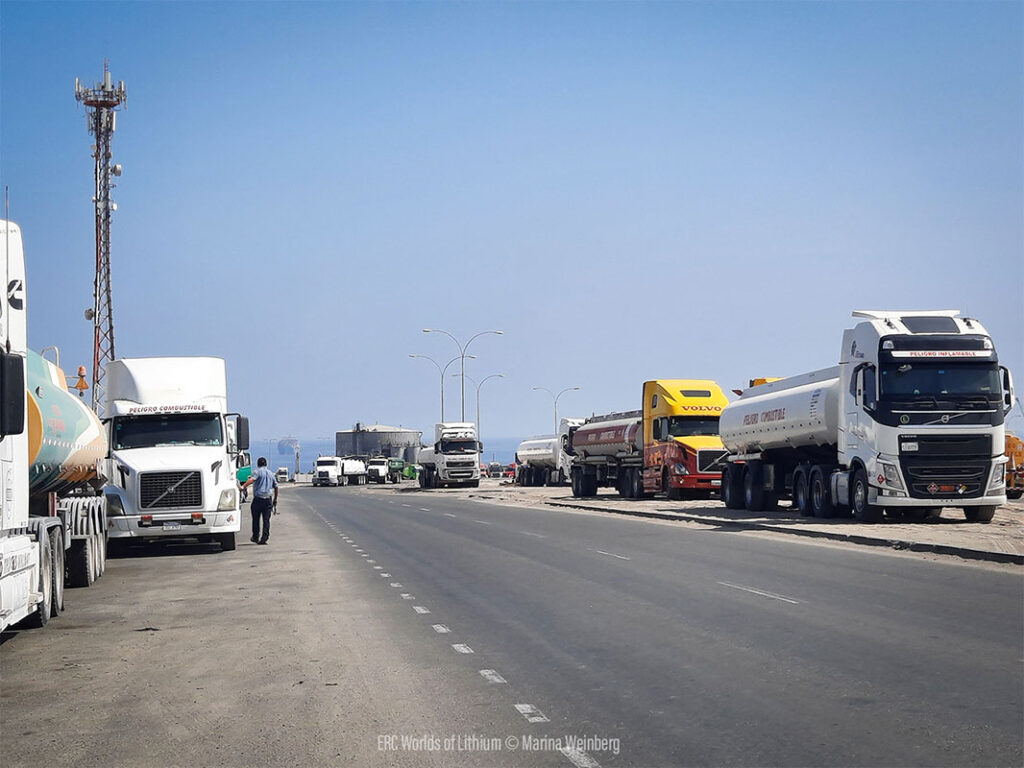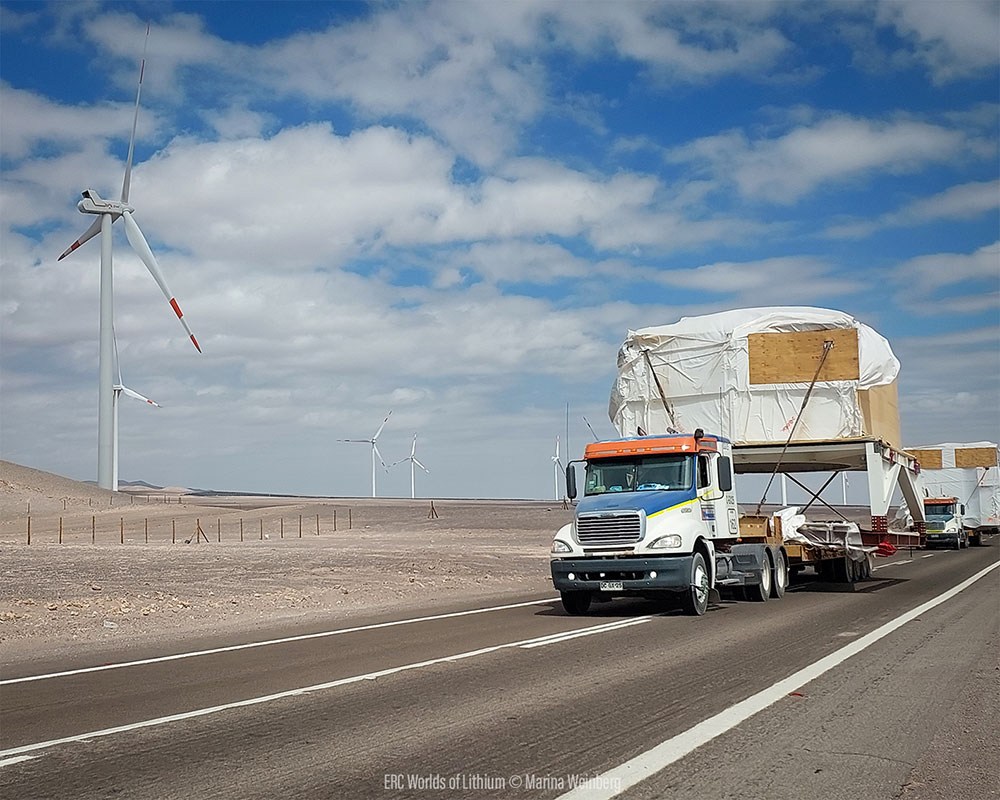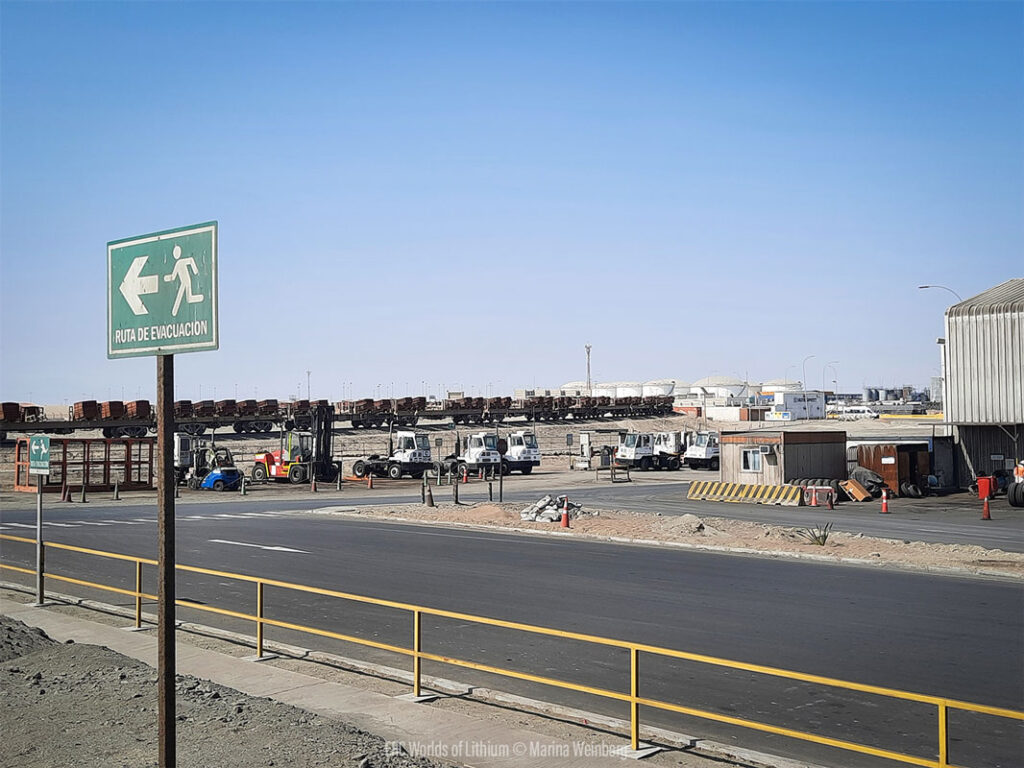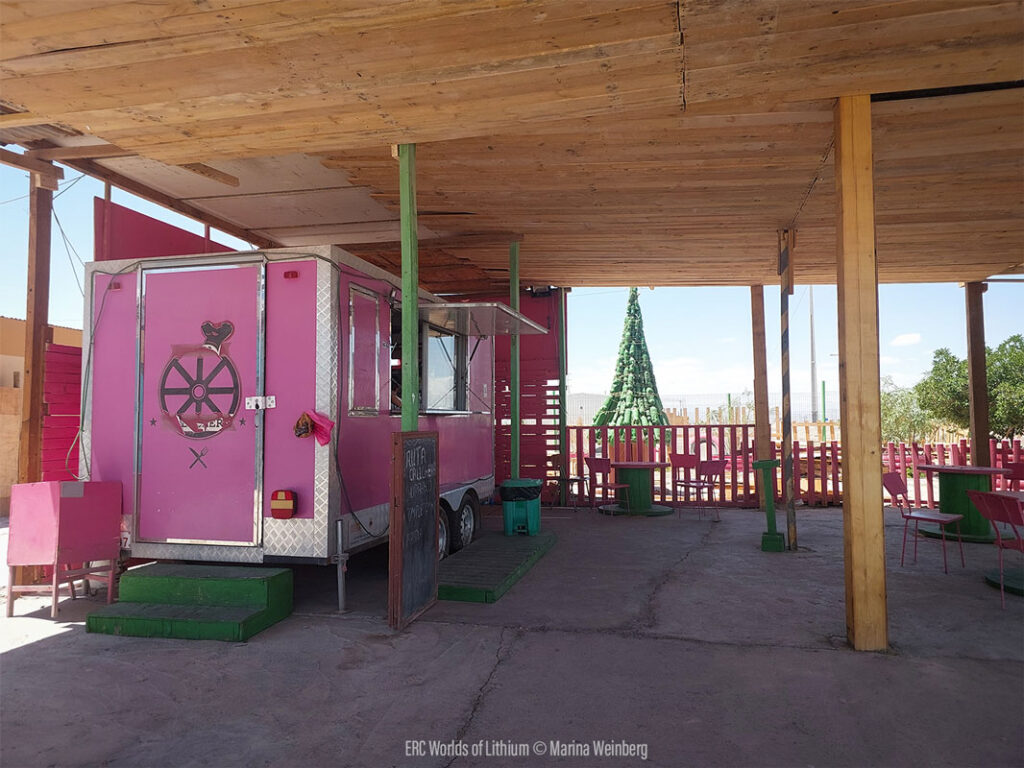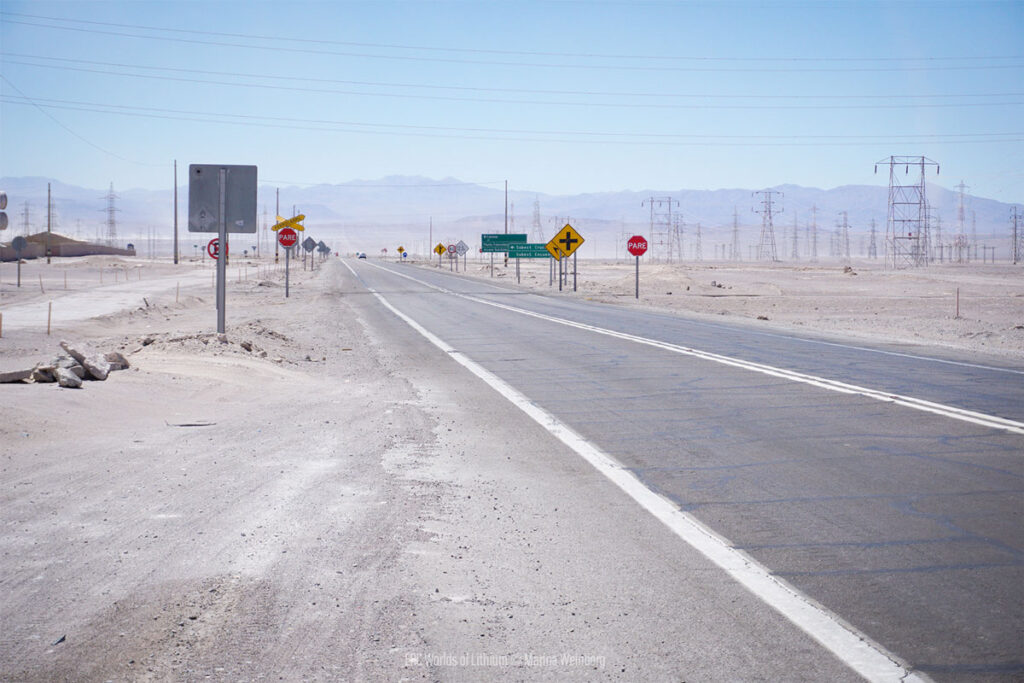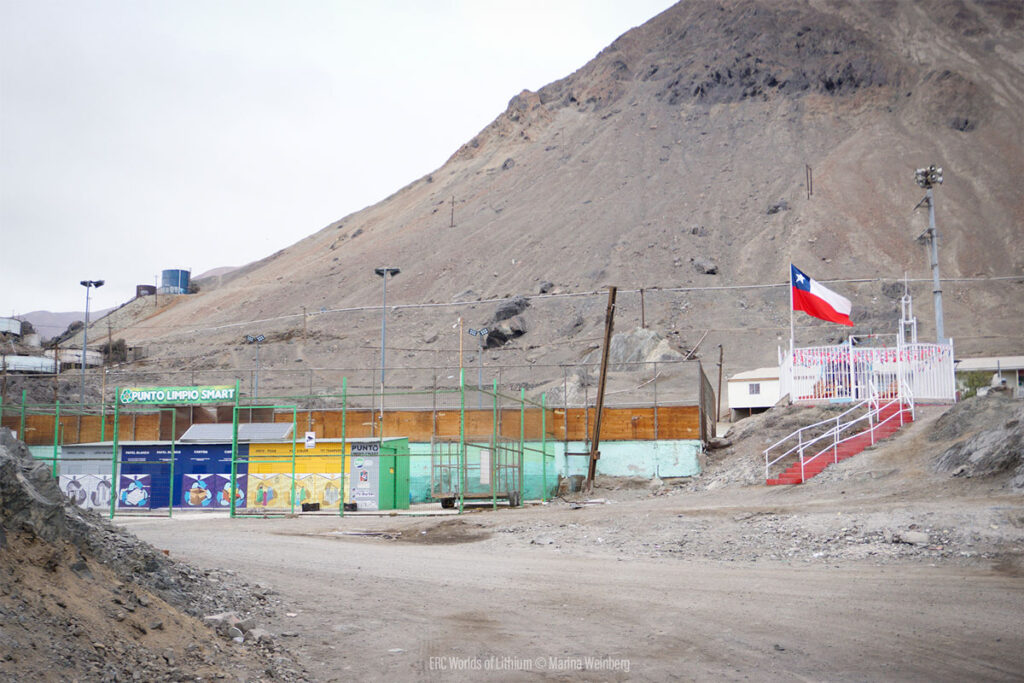Research
As responsible researcher of the Worlds of Lithium work-package on Chile, Marina studies how lithium connects and transforms landscapes and societies in the Atacama Desert, the driest desert of the world. More particularly, she looks at how lithium extraction and conversion practices are entangled within social and material transformative dynamics in the Antofagasta region, northern Chile, where the biggest lithium deposits, industrial plants and ports, are located. Great attention has been paid to socio-environmental conflicts over the territories surrounding the Salar de Atacama in response to the urgency imposed by the rush for so-called white gold. This proliferation of observations in what global capital has indicated as the site of the resource, calls for paying attention to spaces outside the Salar, which this research considers to be doubly neglected, by capital and by scholarly examinations.
Rather than focusing on the well-studied footprint of this water-intense extractive activity on the fragile salt-pan ecosystems and ecologies, Marina’s study is concerned with what companies have identified as the ‘off-sites’ of lithium. These ‘off-sites’ are diverse and greatly transformed socioscapes that frame not only the geophysical pathway of brine from the extraction places to the ports from where the final products are distributed around the world, but also encompass vast worlds with specific and complex material, social, and symbolic dynamics.
In her work, Marina introduces the ‘off-sites’ not only as spaces/places but as an analytical concept that proposes to bring back (and together) many constituents that are intertwined within the multifaceted processes of lithium extraction, production, and distribution (and, consequently, numerous other mining and non-mining activities), beyond the economic and productive realms.
Fieldsite
Marina’s research takes place in the Atacama Desert, the driest desert in the world, located in northern Chile. She maintains a base in the town of San Pedro de Atacama, in the surrounding area of the salt flats that hold the largest lithium reserves that accounts for more than 50% of the world’s lithium production, and where brine is extracted. More than 85% of the world’s lithium reserves are found in the salt flats system between Argentina, Bolivia, and Chile, where unique geophysical conditions such as intense solar radiation enable the extraction of brine at a low cost production and maximal ecological effects.
Resulting from her current research, Marina moves from the heart of the desert towards the Pacific coast, following the lithium’s path. As one travels away from the Salar de Atacama, the world-famous pools start to fade away and a sequence of oversized mining establishments, power plants (gas-fired, photovoltaic plants, solar thermal installations), and a few impoverished camp towns that subsist on the great mining industry unfold. Arriving to the coastal area, her research observes industrial districts such as La Negra-Antofagasta where lithium processing plants are located, and finally, the port-cities Tocopilla and Mejillones, from where lithium and its by-products (lithium carbonate and lithium hydroxide) are exported.
Biosketch
Licenciate in Anthropology from the University of Buenos Aires, and MA and PhD in Anthropology from Binghamton University-State University of New York, Marina has lived and researched for the last fifteen years between the Argentinean and Chilean Andes. Her areas of study have been focused on political and economic anthropology, focusing on critical theories of the state. Previously, she worked on issues related to indigenous peoples, territories and development in northern Argentina. At present, her work is situated within the anthropology of mining, focusing on the material, social and symbolic dynamics mineral extractions, mainly produced by lithium and copper extractivisms, convey in northern Chile.
Marina is Assistant Professor at the Institute of Archaeology and Anthropology -San Pedro de Atacama- Universidad Católica del Norte http://iaa.ucn.cl/web/profesores/marina-weinberg, and Principal Investigator at the Núcleo de Investigación UCN ‘TraGeMa-Studies on Labor, Gender and Mining in the Atacama Desert'.
In the pipeline
Biskupovic, Consuelo, Marina Weinberg, Adriana Aránguiz, Jimena Cruz, Valentina Figueroa, Fernanda Kálazich, and Paulina Salinas. 2023. “Territorios de Cuidado: Propuestas desde un Enfoque Feminista ante el Extractivismo en el Desierto de Atacama, Chile.” Latin American Perspectives. (Forthcoming)
Previous publications
Weinberg, Marina. 2019. “Agricultores Familiares, ¿y Después? Impacto de la Inclusión de Organizaciones Indígenas a la Estructura Estatal.” Chungara Revista de Antropología Chilena 51 (4): 693-709.
Weinberg, Marina. 2019. “Especies Compañeras Después de la Vida: Pensando Relaciones Humano-Perro desde la Región Surandina.” Antípoda Revista de Antropología y Arqueología 1 (36): 139-61.
Weinberg, Marina. 2017. “From the Neoliberal State to a Neo-National Development in Northwestern Argentina.” Latin American Perspectives 215, 44 (4): 152-67.
Weinberg, Marina, Pablo H. Mercolli. 2017. “Sweet Death: Indigenous Labour Exploitation in the San Martín de Tabacal Sugar Mill, Salta, Argentina.” Cultural Studies 31 (1): 70-92.
Weinberg, Marina. 2013. “Descubriendo el Desarrollo: Políticas de Estado y Política Indígena en el Noroeste Argentino. ¿Una nueva era post-neoliberal?” Perspectivas de Políticas Públicas 3 (5): 77-100.

